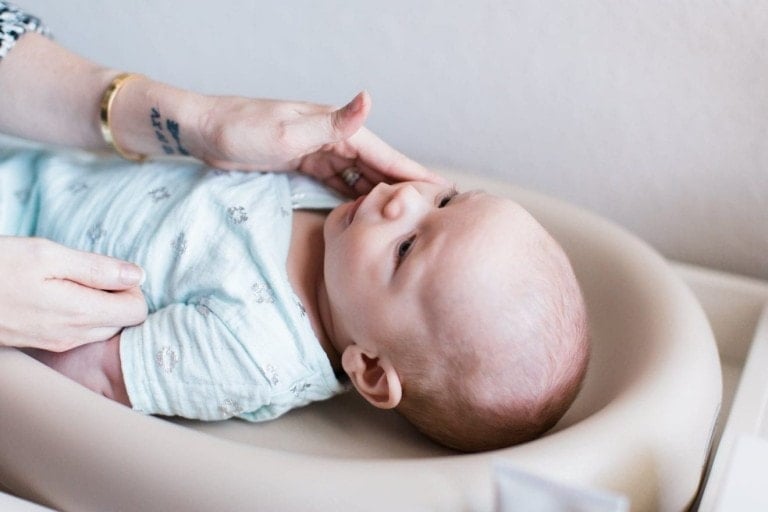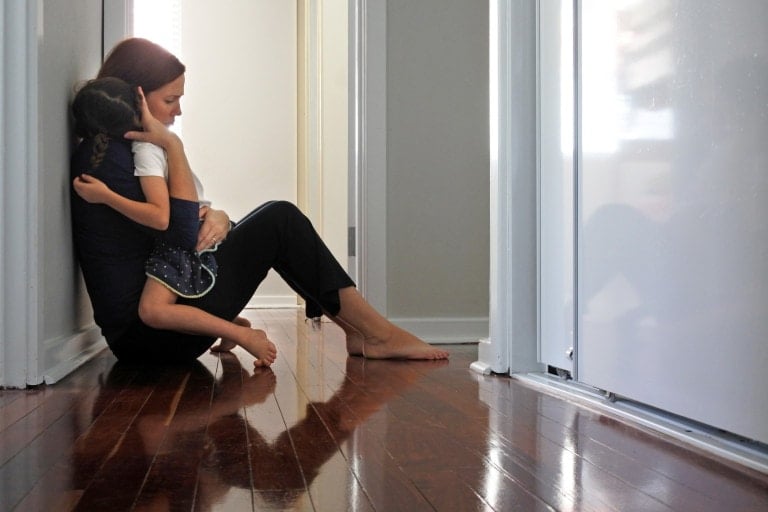Going from being a pediatrician without kids to being one with kids was a different ball game for me. There are just some things medical school cannot teach you! The same is true for all of the parenting books. It’s great for new parents to read them and prep as much as you feel like you need. But that first pediatrician visit is usually lengthy, no matter how much research you’ve done! As a parent, I can better understand where new parents are coming from when they come in with a list of questions for their pediatrician about their newborn.
5 Most Common Pediatrician Questions
1. Does breastfeeding ever get easier?
Nursing is challenging, and “no pain, no gain” really describes those first few weeks of breastfeeding. The most important thing is to get a lot of help from the lactation consultants in the hospital. They can help you and your baby learn a proper latch from the get-go. In the first 2-3 weeks, it can feel like your little one lives on your breast. Your breasts will hurt and get engorged often. It’s easy to start feeling like you want to give up. But I PROMISE things get easier after those first 2-3 weeks.
Your baby will feed more efficiently, and your breasts will not be as sore. You also don’t have to worry much if your baby is getting enough milk. Usually, by this point, you can recognize the signs of fullness. Most newborns need to nurse at least every 2-3 hours during the day. And they should not go more than four hours at night without feeding. But the easiest thing to do is to feed on demand. Please do not try to schedule newborns! It can be dangerous and usually leads to more crying on the baby’s part and more stress for you.
2. What are the most important things every new parent should know?
If your baby has a fever (rectal temperature of more than 100.4) in the first month of life, they will be admitted to the hospital for a workup. Please always bring them in if they have a fever, especially in the first few months of life. But know that if a high fever occurs during the critical first month of life, they will be going to the hospital.
All babies should be placed on their backs to sleep. There is a high risk of SIDS if placed on their belly to sleep. They should always be in a crib/bassinet for sleep. The only thing that should be in the crib is one fitted sheet—no crib bumpers. No blankets. And no teddy bears. They can stay in a swaddle until they begin to roll, and then they can go into a sleep sack.
3. I don’t understand my newborn’s sleep.
Newborns are usually awake much more at night and sleep more during the day. They sometimes cluster feed towards the evening hours but might not give you a significant break from wanting to nurse for those first 2-3 weeks. Overall, they sleep 16-18 hours a day. Newborns should always be woken from sleep if they go more than 3 hours during the day or more than 4 hours at night without eating for those first few weeks. To try to adjust them to days and nights, have them sleep in a common room where the blinds are open and you do your normal daily activities. Then, keep nighttime very dark and quiet.
4. My baby’s poop is a rainbow of green, brown, and yellow.
The only colors that are concerning for baby poop are red (blood), black (old blood), and white (liver problem). Other than those three colors, every other color is most likely normal. Breastfed babies’ poop is usually yellow and mustard-like. Formula-fed babies can have more formed and darker brown stools.
5. Can I take my newborn out?
The best time to have your little one out and around people is after the second month’s set of vaccines. Before that, they are at high risk of contracting an illness, which is a lot more serious when they are that tiny. Feel free to go on walks and don’t feel like you are on house arrest. But I would avoid supermarkets, restaurants, and the airport until they get vaccinated.
I hope that these common pediatrician questions help some of you first-time mommas. Keep those questions coming at your doctor’s visits. Even for those of us who believed we were more “experienced” when it came to babies, we were lost in the beginning!































